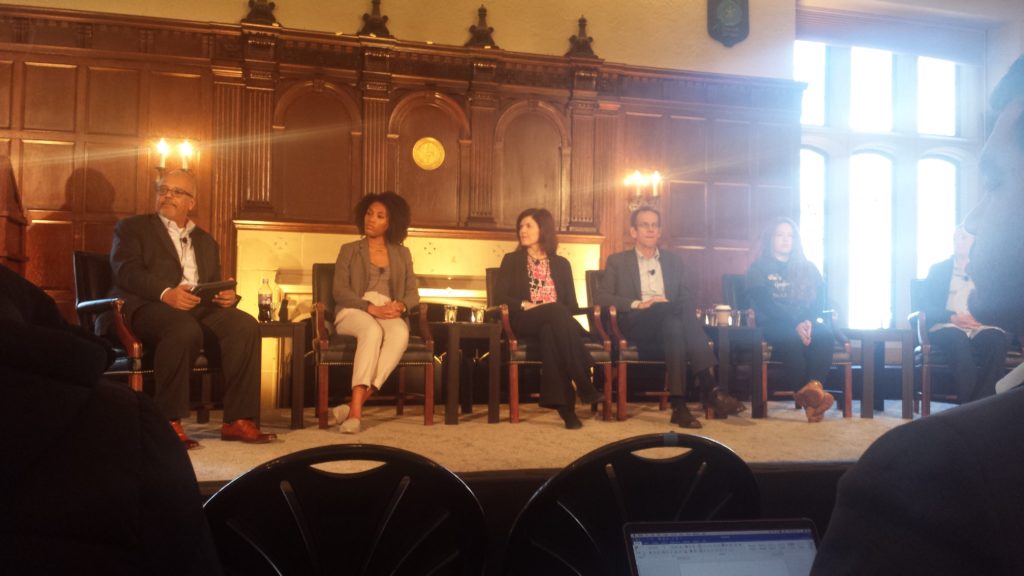Georgetown U. Panel Reflects on School Shootings
By • March 26, 2018 0 898

One of the solid facts of college life is the opportunity for students to connect through discussions and sharing their stories.
Georgetown University President Jack DeGioia made it clear on Friday, March 23, the day before the March for Our Lives in the heart of D.C., that the university’s penchant for discussion is the best way to think deeply and effectively about the recent school shootings and the impact of gun violence.
To bring about this kind of productive exchange, the university held a panel discussion in Copley Formal Lounge that featured Letitia Bode, assistant professor in the Communication, Culture and Technology master’s program; law professor David Cole; Leslie Crutchfield, executive director of the Global Social Enterprise Initiative; current student Sarah Clements; and recent graduate Colleen Roberts.
The panel was moderated by Mo Elleithee, executive director of the university’s Institute of Politics and Public Service. “I couldn’t think of anyone better,” said DeGioia.
The panelists challenged the idea that social change solely lies in the hands of politicians and policy makers. An example that Cole mentioned is the attempt to appeal to the Minnesota Supreme Court and, in 1972, the federal Supreme Court on the question of same-sex marriage. At the time, though the 1972 judges were liberal, the courts did not consider this issue a serious one, in fact seeing it as “frivolous.” One judge, Cole said, did the following: “He turned his chair around.”
Though the Supreme Court in 2015 was far more conservative, the issue of same-sex marriage was seen as “inevitable.” The way this issue became one that was taken seriously was through gay rights groups making the case on university campuses and in other forums, using a town-by-town and state-by-state strategy. Another success story has been the movement against smoking, with smokers now making up a fairly small part of the population.
“Students are leading the charge,” Elleithee said. Clements is one of those people. She did not go rushing towards the student activism path. Instead, it came to her soon after the Sandy Hook school shooting struck close to home: her mother was a second-grade teacher at Sandy Hook Elementary School. Thankfully, her mother survived the shooting, but the incident spurred her to try to do something about the gun violence that affects young people, whether carrying weapons in public, suicides via gunshots or gun violence, pure and simple.
“Always listen to young people. Always listen to students,” Clements said.
The question is whether the die-ins, marches and walkouts will make a difference. Cole said that people aren’t born with hope in their DNA, nor are they born with apathy or fatalism. Instead, those sentiments are the results of concrete actions. “If we act, we create hope,” he said.

